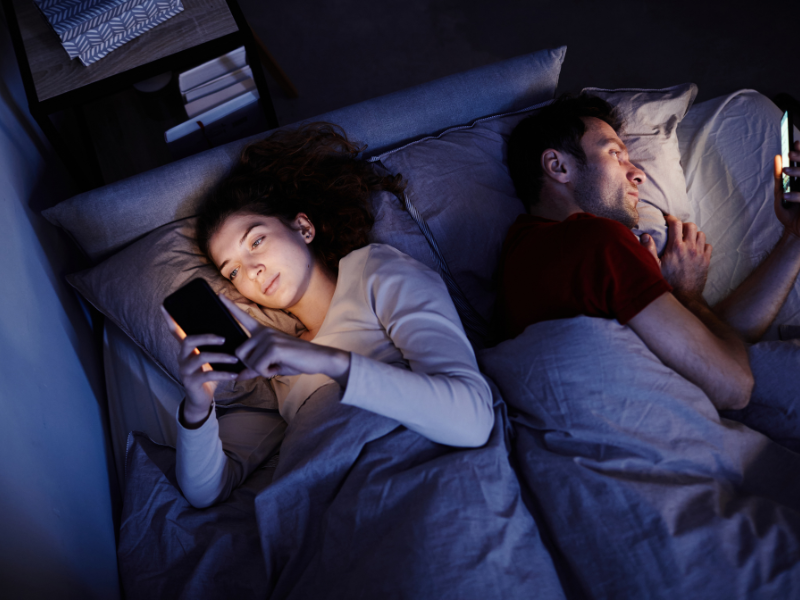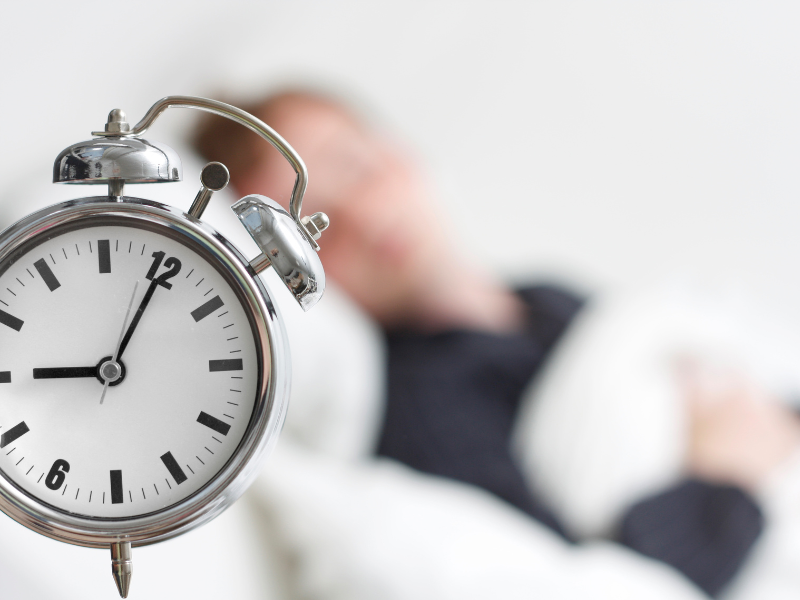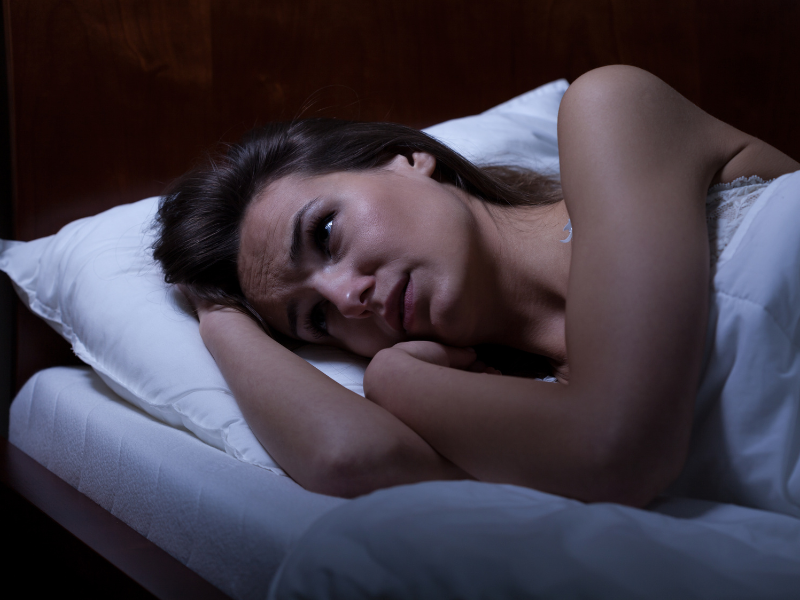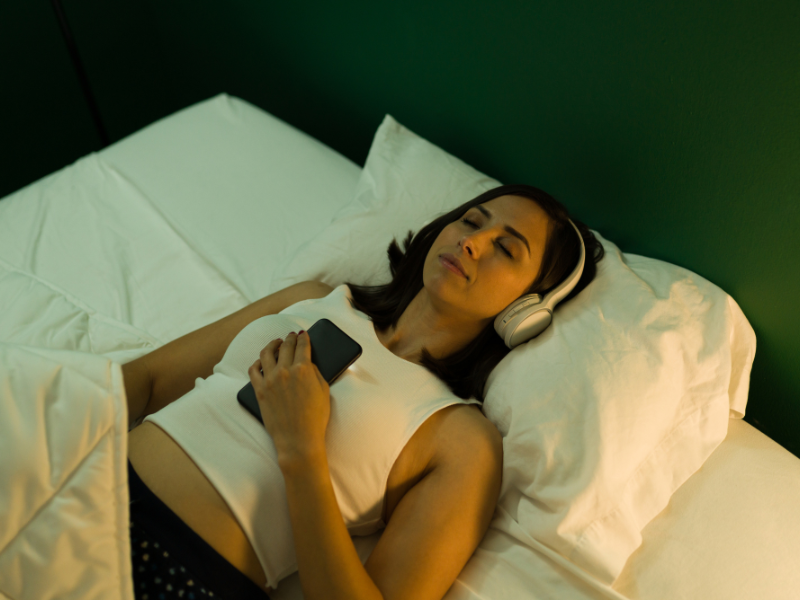


Sleep should be one of your most frequent activities, but unfortunately, that’s not always the case. Many people struggle with poor sleep quality, and unhealthy sleep patterns that they simply accept, overlooking its importance because it’s so commonplace. Sleep, however, is central to health and healing. That’s why we’ve assembled 10 sleep tips to help you beat insomnia, improve your sleep quality and wake up feeling bright and alert.
Sleep is a basic necessity that we need for us to maintain optimal health and function well in our everyday lives. It plays an integral role in terms of cognitive functioning, mental well-being, mood regulation, cardiovascular, cerebrovascular, and metabolic health. Generally, the recommended amount of sleep for a health adult is minimally seven hours of uninterrupted sleep.
Insufficient quality sleep or having an untreated sleep disorder can have negative implications on our physical health, mental health, and safety. When we fail to get enough quality sleep, it not only increases the risk of accidents or making frequent mistakes but it can also increase the risk of mortality and other health conditions [1].
Getting good quality sleep is associated with several health benefits such as reduced daytime sleepiness, lowered blood pressure, lowered risk of cardiovascular disease, and lowered risk of diabetes and obesity [2], [3], [4].
So how can you ensure that you are getting at least seven hours of sleep per night?
It starts with cultivating good sleep habits and ensuring that you are incorporating them into your current sleep routine. Below are 10 tips to help you get a good night’s sleep and wake up feeling refreshed.
One of the key benefits of having a regular sleep schedule is that it can have positive effects on your physical health, mental health, and your performance. It can help you to cope with stressful situations better and feel less emotionally affected by it [5].
Ideally, you should aim to wake up and go to bed at the same time each day, even on weekends. This helps to send a signal to your brain on when to wake and fall asleep, regulating your body’s circadian rhythm. To find the best time for you to sleep and wake up, consider using our free sleep calculator!


Before going to bed at night, try to limit the use of your electronic devices. Electronic devices emit blue light which is similar to sunlight exposure. When you’re exposed to such light, it blocks the production of the sleep hormone, melatonin and can lead to sleep loss and poor sleep quality. Melatonin plays a crucial role in regulating our circadian rhythm, responsible for helping us fall asleep [6].
Thus, a lesser amount of melatonin would mean that it would take longer to fall asleep, reducing the length of sleep. You want to avoid using electronic devices at least one hour before bedtime.
See also: How Much Melatonin Should I Take for Better Sleep

Mindfulness meditation has increasingly become a popular option to use to help people who have trouble sleeping, fall asleep faster. Mindfulness is the practice of centering yourself and being aware of the present moment.
Such meditation practice can be used to help cope with overthinking as well as stress and anxiety. Having a calm mind can make it easier for you to fall asleep [7].
Separately, in a study that involved older adults who had trouble falling asleep, it was found that the group had reported less insomnia and fatigue at the end of the mindfulness meditation program [8].
Even though a 4 pm nap sounds delicious, it can signal to your body that your time to sleep is much further away than it actually is. As such, you might find yourself feeling wide awake even when it is close to midnight.
Additionally, to reap the health benefits of taking a nap, you want to ensure that you are keeping your naps to no longer than 20 to 30 minutes. A nap that is longer than that may disrupt your circadian rhythms and cause you to feel groggy upon waking. Studies also found that those who took naps longer than 30 minutes had a higher risk for insulin resistance, obesity, and metabolic syndrome [9].
In the same way, a regular bedtime can help ensure that your body’s internal clock is properly regulated, creating a relaxing bedtime routine can signal to your brain when it’s time to wind down for bedtime.
At least 20 to 30 minutes before sleep, spend time doing a relaxing activity to help relax your mind and fall asleep. Some activities to try include reading a bedtime story, listening to sleep music, taking a warm shower, or doing light stretches. The goal is to clear your mind and allow your body to get into a state of relaxation to facilitate an easy sleep process.

Exercise helps your body in more ways than one. It releases endorphins and helps repair and reset the body in all sorts of other ways. Not to mention it tires you out for bed.
Further, exercise can help improve any respiration problems that might be ailing you, which also affects sleep. However, it is important to note that you should be doing exercises during the daytime and not when you decide to go to bed. Exercise can increase alertness and stimulate your brain to stay awake, affecting nighttime sleep quality.
Train your way – choose workouts that suit your lifestyle with no equipment, free weights, or machines, and express workouts when you are short on time. JustFit offers a broad suite of challenging, yet achievable workout programs.
It is not ideal for you to consume any alcohol or caffeine before going to sleep at night. Coffee is a known stimulant that can keep you up for hours. If you do need to consume caffeine, you should only consume it early in the morning or before the late afternoon. Generally, you should avoid caffeine a minimum of 4 hours before going to bed.
As for alcohol, while it has a sedative effect and induces relaxation, it is also associated with sleep disruptions during REM (Rapid eye movement) sleep. This results in poor sleep quality, contributing to daytime sleepiness and fatigue. Additionally, it may worsen sleep apnea symptoms [10].

This is one of my personal favorites. A weighted blanket can help you feel secure and safely enshrined without overheating you.
Designed for specific issues, they have a surprisingly wide-ranging benefit and appeal. Do some research and invest in a quality blanket.

If you can’t fall asleep within 20 minutes of trying, do yourself a favor and just get out of bed.
Although it’s important to have a bedtime, laying in bed unable to sleep increases stress, thus pushing sleep even further and further away.
You’re better served to get up and do some other activity, and then return to bed once you get sleepy.

A comfortable sleep environment can help you to get a good night’s sleep. Ensure that your bedroom environment is kept at a cool temperature, dark and noise-free. If you live in an area that is constantly surrounded by loud background noises, you may consider using white noise as a way to drown it out.
ShutEye® app, for example, provides a huge selection of white noise for you to choose from so that you may sleep peacefully at night. From rain sounds,and peaceful ocean sounds to thunderstorm sounds and ambient noise, there’s always something for every sleeper.
Getting good, healthy sleep is a lifelong investment. While it’s not easy to fix your sleep habits right away, making gradual changes is the first step to improving your overall health and well-being. Feel free to follow any of the sleep tips listed above, whichever is the easiest to turn into a good habit.
Aside from following these tips, you can also learn to adopt new habits and practices through the ShutEye® app. ShutEye® tracks and monitors your sleep patterns, offering personalized sleep tips to help you improve the quality of your sleep. Try for FREE today and start your journey towards restful sleep!
Singapore Heart Foundation (2022) Does Consuming Alcohol Before Bed Help Me Sleep Better? [online]. Available at: https://www.myheart.org.sg/heart-news/alcohol-helps-sleep-better/
Harvard Health Publishing (2023) Keep midday naps to less than 30 minutes [online]. Available at: https://www.health.harvard.edu/staying-healthy/keep-midday-naps-to-less-than-30-minutes
Harvard Health Publishing (2020) Mindfulness meditation helps fight insomnia, and improves sleep [online]. Available at: https://www.health.harvard.edu/blog/mindfulness-meditation-helps-fight-insomnia-improves-sleep-201502187726
Harvard Health Publishing (2022) Too little sleep may be hard on your heart [online]. Available at: https://www.health.harvard.edu/heart-health/too-little-sleep-may-be-hard-on-your-heart
National Sleep Foundation (2023) Setting a Regular Sleep Schedule [online]. Available at: https://www.thensf.org/setting-a-regular-sleep-schedule/
Ramar, K., Malhotra, R. K., Carden, K. A., Martin, J. L., Abbasi-Feinberg, F., Aurora, R. N., Kapur, V. K., Olson, E. J., Rosen, C. L., Rowley, J. A., Shelgikar, A. V., & Trotti, L. M. (2021). Sleep is essential to health: an American Academy of Sleep Medicine position statement. Journal of Clinical Sleep Medicine, 17(10), 2115–2119 [online]. Available at: https://doi.org/10.5664/jcsm.9476
Rusch, H. L., Rosario, M., Levison, L. M., Olivera, A., Livingston, W. S., Wu, T., & Gill, J. M. (2018). The effect of mindfulness meditation on sleep quality: A systematic review and meta-analysis of randomized controlled trials. Annals of the New York Academy of Sciences, 1445(1), 5 [online]. Available at: https://doi.org/10.1111/nyas.13996
Silvani, M. I., Werder, R., & Perret, C. (2022). The influence of blue light on sleep, performance and wellbeing in young adults: A systematic review. Frontiers in Physiology, 13, 943108 [online]. Available at: https://doi.org/10.3389/fphys.2022.943108
Stock, A. A., Lee, S., Nahmod, N. G., & Chang, A. (2020). Effects of sleep extension on sleep duration, sleepiness, and blood pressure in college students. Sleep Health, 6(1), 32-39 [online]. Available at: https://doi.org/10.1016/j.sleh.2019.10.003
UCLA Health (2024) The surprising connection between sleep and weight management [online]. Available at: https://www.uclahealth.org/news/article/surprising-connection-between-sleep-and-weight-management